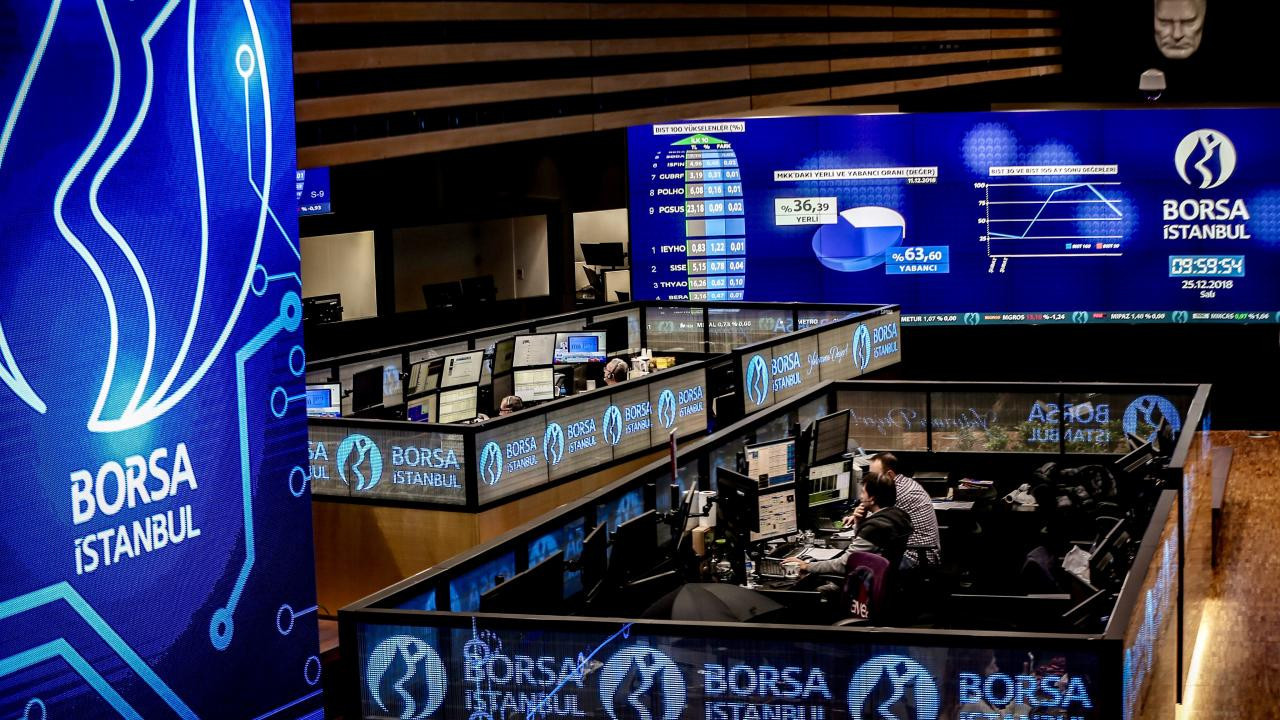Turkish stocks start week with strong losses amid global turmoil
The Turkish benchmark stock index opened the week at 9,769.69 points, dipping 6.72% or 703.807 points from the previous close as the Asian markets experienced strong selloffs and the U.S. Fed remained reluctant to lower interest rates.
Duvar English
The BIST 100 index on Borsa İstanbul started the week on Aug. 5 with a decline of 6.72%, opening at 9,769.69 points.
The banking index fell by 7.79%, and the holding index decreased by 5.97%. Although all sector indices fell, with the banking sector experiencing the largest loss.
On Aug. 2, the BIST 100 index, which moved in a downward trend before closing, completed the day at 10,473.47 points, down 3.01 percent compared to the previous close.
After the losses in the BIST index exceeded 5%, the "Index-Linked Circuit Breaker System" was activated and transactions in the market were temporarily stopped to curb panic-selling.
Analysts have noted that domestic inflation figures, the Purchasing Managers' Index (PMI) for the services sector in Europe and the U.S., as well as the Producer Price Index (PPI) and Sentix Investor Confidence Index in the Eurozone, would be closely watched as the global turmoil have been continuing.
Economists have indicated that the support levels for the BIST 100 index were at 10,450 and 10,400 points, while the resistance level was at 10,700 points.
The U.S. dollar, which was traded at 32.98 Turkish liras on the first day of August, broke a new record by rising above 33.37.
Euro/lira, which started the new week at 36.35, also reached a record high of 36.65 within a few hours after the market opening.
Global markets have been experiencing record declines due to the possibility of the Federal Reserve’s (Fed) policy error for being reluctant to lower interest rates amid rising recession expectations in the States.
While the increase in recession concerns in the U.S. caused a historic decline in Asian markets with intense selloffs, the decline exceeded 13 percent in Japanese stock markets and 8.5 percent in South Korea.
These developments in global markets also impacted Borsa İstanbul, which has a high concentration of foreign assets.

 Turkey’s official annual inflation rate drops to 61.78 pct in July, lowest in 9 monthsEconomy
Turkey’s official annual inflation rate drops to 61.78 pct in July, lowest in 9 monthsEconomy Borsa Istanbul ranks first in Europe in size of initial public offeringsEconomy
Borsa Istanbul ranks first in Europe in size of initial public offeringsEconomy Foreign investment interest in Turkey continues to surgeEconomy
Foreign investment interest in Turkey continues to surgeEconomy